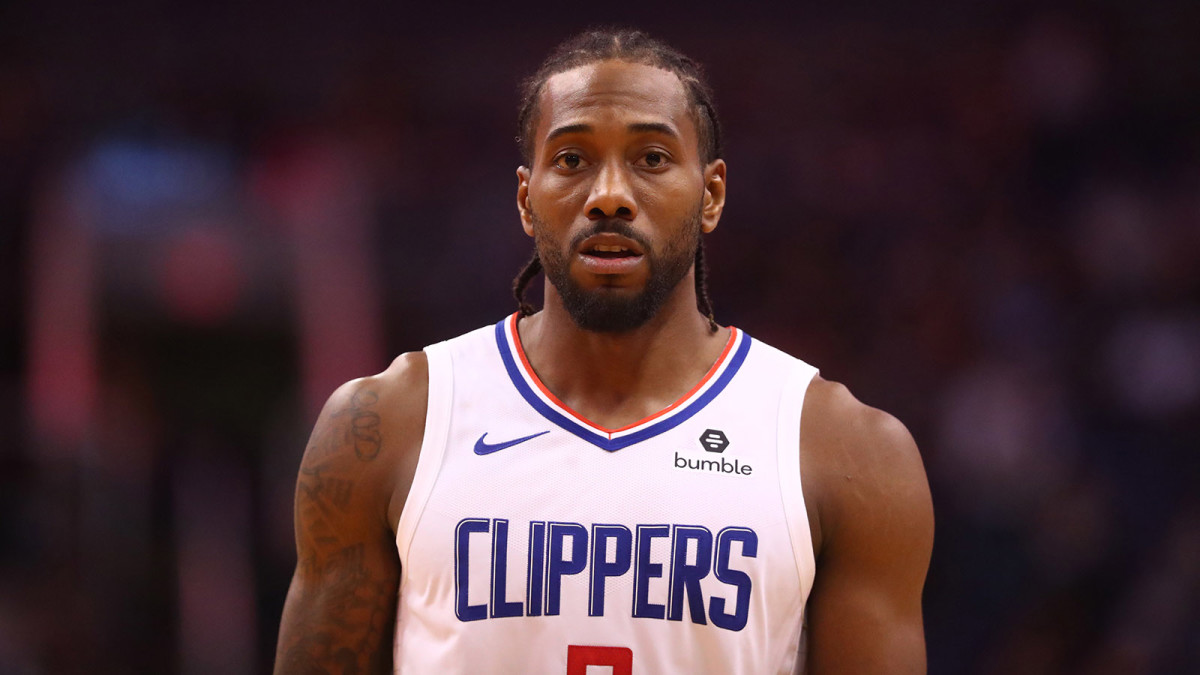Unpacking All Sides of the NBA’s Load Management Conversation


Kawhi Leonard didn’t play against the Bucks on Wednesday night. Leonard missed the game due to “load management,” the catch-all term du jour that NBA teams use when they want to rest a player. Leonard’s decision to sit for Giannis Antetokounmpo’s only road game against the Clippers led to a flurry of takes. Is this bad for basketball? What about the kids? Is the current league too soft? And then…the game started, and the Clips and Bucks actually put on a very entertaining show.
Montrezl Harrell and the Greek Freak somehow entered a scoring duel. Eric Bledsoe did something funny (and got away with a massive flop.) Landry Shamet re-discovered his three-point shot. The product was ultimately still good, but Leonard—who is now in his second straight season of being load managed—definitely started a pretty layered discussion around resting players during the regular season. Let’s try to unpack everything that comes with load management.
1. Are we sure load management works? Supporters of rest will point to last season’s Finals, when the Raptors were able to defeat the Warriors and Kawhi—coming off his mysterious injury with the Spurs—won Finals MVP after resting periodically throughout the season. Teams, of course, are also consulting all kinds of studies and scientific data when they decide how to manage their players. Even if some of the science on rest is some level of inconclusive—as The Ringer’s Ryen Russillo points out—common sense would still almost certainly dictate that players will be fresher for the playoffs if they play in fewer games during the regular season. Using Kawhi’s Finals run—in which he actually looked a little slowed down during the conference finals—is probably less convincing than that last line of logic. Basically, even if teams can’t say with full confidence that load management prevents XYZ, why wouldn’t they rather err on the side of caution when it comes to their star players?
2. What do fans want? As a fan, I was definitely a little bummed when Kawhi and Giannis weren’t going head-to-head on Wednesday. But it wasn’t something I was thinking too hard about during the actual game. In terms of fans, all I really have to say is this: I don’t think it’s possible to have it all anymore. If players are going to be judged by how many championships they win—a culture in large part propagated by the people consuming the league (like fans and writers)—then they are going to do everything in their power to achieve that goal. If missing some regular season games in November improves Kawhi’s championship odds even the slightest bit, why wouldn’t he make that trade? As long as the basketball public in general cares more about titles than anything else when it comes to judging great players, that pressure is eventually going to make its way down to them one way or another. Why would Kawhi be motivated to play all 82 if his success depends on what happens in April, May and June?
3. Is the league doing enough? I actually have sympathy for the league on this front. Making a schedule seems incredibly difficult, and the NBA already has to deal with unforeseen circumstances, like putting the Warriors on a bunch of national TV games only for their roster to get further decimated by injuries. By all accounts, the NBA has listened to science and its players. Back-to-backs have been greatly reduced. There’s more time off during the All-Star break. The preseason is shorter. And there’s more rest built in to the season. I don’t know what more the league can do. Reducing the number of games sounds easy, but then everyone makes less money. If basketball-related income goes down, so do the player salaries. Kawhi may not want to play all 82, but it benefits his bank account for there to be that many games on the schedule. It’s not simply the owners who would stand to lose money if the season were to be shortened.
4. What about the TV partners? This is where it gets interesting to me. ESPN and TNT are probably the ones who are most upset about load management. They’ve already paid billions for the right to air NBA games, and they are completely powerless when a star player decides to sit out a marquee matchup. The league has started to encourage teams to make sure their best players are participating in national games, but obviously enforcing that kind of policy would be impossible. As it is with reducing the number of games, money talks. If the league’s TV partners start to grumble about load management, then both the owners and players would have to listen. What if TNT and/or ESPN tried to do something radical like institute some kind of penalty for X number of games missed by All-Stars? Or some other way to measure when star players sit out? I’m not sure the TV partners would want to play such intense hardball. But the league’s ratings have stagnated, and the spend-happy days of the TV-rights boom is kind of over. If the NBA’s partners want to fight over load management, that could actually grab the attention of both the league and its biggest names.
5. Is There a Fix? Well, I certainly don’t presume to have an answer that Adam Silver’s office has I’m sure been furiously trying to find for years. What I always come back to is this: Is there a way to make the regular season more culturally important? That’s why I don’t hate ideas like the in-season tournament. It would take years to build a tradition that players cared about, but right now, there’s no incentive in the regular season that compares to the allure of winning a championship. Maybe it’s as simple as creating a financial prize for teams that finish first in the conference. (Like when Magic Johnson wanted to put a million bucks down to get LeBron in the dunk contest.) For now, championships are so much more important than any other aspect of the sport that players as accomplished as Kawhi only need to chase titles. As long as the money is still flowing in from the fans and TV partners, the league may need to create something else for players to chase to ensure we all get to see the matchups we really want to see.
